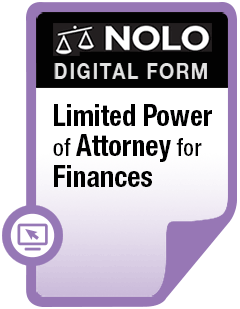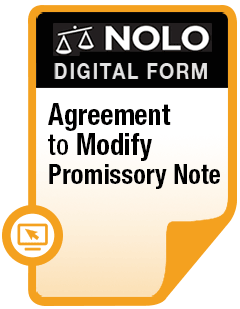Find out when you can legally withhold credit card payments and how to request a "claims and defenses" chargeback if you have a problem with a purchase.
If you're facing a credit card dispute with a merchant, whether it's over a defective product or you received the wrong item, you have important rights under federal law. In some cases, you might be able to withhold payment and request a "claims and defenses" chargeback from your credit card company, up to the amount outstanding for that purchase. This rule has a few exceptions and conditions you must meet before you withhold payment.
This article explains when you can legally withhold a credit card payment, how the dispute process works, and what steps to take to protect your money and credit.
- When Can You Legally Withhold Payment?
- Conditions for the Claims and Defenses Chargeback Process
- Limitations for the Claims and Defenses Chargeback Process
- Using the Billing Error Process to Withhold Payment
- Claims and Defenses vs. Billing Errors Reference Chart
- How Much You Can Withhold Under the Claims and Defenses Dispute Process
- Step-by-Step: How to Request a Claims and Defenses Chargeback
- How a Claims and Defenses Dispute Affects Your Credit
- Frequently Asked Questions About Claims and Defenses Chargebacks
- Getting Help With the Claims and Defenses Process
When Can You Legally Withhold Payment?
You can often withhold payment under a "claims and defenses" dispute, subject to the limits and conditions below, if you believe you shouldn't have to pay a certain credit card charge because the seller refuses to replace or repair an item or otherwise refuses to correct a problem. (15 U.S.C. § 1666i, 12 C.F.R. § 1026.12(c) (2025).)
Some examples of when this might happen include when the item you bought was defective or the business sent the wrong item. Basically, you can refuse to pay the card issuer for a purchase you made with your credit card if you have a valid claim or defense you could raise against the merchant (such as defective merchandise or breach of contract), excluding tort claims. It applies when a merchant fails to resolve a dispute satisfactorily regarding items or services purchased with the credit card.
Conditions for the Claims and Defenses Chargeback Process
Before withholding payment, you must make a good-faith effort to resolve the dispute with the seller. If the merchant won't resolve the problem, you can file a claims and defenses dispute with the credit card company. However, if you're disputing a billing error, you'll use a different procedure, see below.
In writing, you must also explain to the credit card company why you're withholding payment.
Limitations for the Claims and Defenses Chargeback Process
There are limits to using the claims and defenses chargeback process for certain types of credit cards. If you used a Visa, MasterCard, or another card not issued by the seller, you can refuse to pay only if:
- the purchase cost more than $50, and
- you made the purchase in the state where you live or, if you live in a different state, within 100 miles of your home. (Your state's law determines whether a purchase you made via home telephone or the internet is considered a purchase made in your state or in the state where the merchant is located.)
Exceptions to the Conditions Requirements
These distance and amount conditions don't apply if:
- the seller issued the credit card (such as a department store card issued by the store)
- the seller controls the card issuer or vice versa or is a franchised dealer, or
- the seller obtained your order by mailing you an advertisement in which the card issuer participated, urging you to use the card to make the purchase.
Using the Billing Error Process to Withhold Payment
There is another process for withholding payment on a credit card if you have a dispute with a merchant: The billing error dispute process. (12 C.F.R. § 1026.13, 15 U.S.C. § 1666 (2025).) You can use this process if, for example, you were charged for property or services that were never delivered to you, the merchant charged an incorrect amount, or someone who wasn't authorized made a charge to your card. But to use that process, you must act within 60 days. There's no time limit for using the claims and defenses dispute process.
Claims and Defenses vs. Billing Errors Reference Chart
Both paths allow you to withhold payment, but claims and defenses are for disputes over the quality or delivery of goods or services (where the merchant won't fix it), while billing errors are for disputes over the accuracy of the charge itself (like duplicate charges or wrong amounts).
| Aspect | Claims and Defenses | Billing Error |
| What It Covers | Disputes about defective goods, services not delivered, breach of warranty, misrepresentation, merchant breaches (a claim or defense you could raise against the merchant but not tort claims). | Clerical or accounting errors on your bill: duplicate charges, wrong amount charged, charges for items never ordered, unauthorized charges. |
| When to Use It | When the merchant won't fix a problem with a product or service. | When your bill contains a mathematical error, wrong charge, or charge you don't recognize. |
| Time Limit to File | No strict deadline. You can file as long as the account is open and the amount is still owed. There is, however, a one year statute of limitations for raising a Fair Credit Billing Act (FCBA) claim, including one under 15 U.S.C. § 1666i, in court under Reg Z. (15 U.S.C. § 1640(e).) The FCBA is part of the Truth in Lending Act (TILA), and Reg Z implements TILA. | Must file within 60 days of receiving the statement with the error. |
| Notification Required | Must first try to resolve the dispute with the merchant in good faith before filing with the card issuer. | Must submit written notice to card issuer within 60 days. |
| Geographic Limit | Applies only if purchase occurred in your state or within 100 miles of your home (unless seller-issued card or special exception applies). | No geographic limits. |
| Credit Reporting | Card issuer can't report the amount as delinquent until dispute is settled or judgment rendered. | Card issuer can't report as delinquent pending investigation; can note as "disputed." (12 C.F.R. § 1026.13(d)(2), see official comment (2025).) |
| If You're Wrong | You might owe the full amount plus finance charges accrued during dispute. | You still owe the amount, but the issuer must prove there was no billing error. |
| Legal Authority | Fair Credit Billing Act (FCBA); 15 U.S.C. § 1666i; 12 C.F.R. § 1026.12(c) | Fair Credit Billing Act (FCBA); 15 U.S.C. § 1666; 12 C.F.R. § 1026.13 |
How Much You Can Withhold Under the Claims and Defenses Dispute Process
You can withhold only the balance on the disputed item or service that is still unpaid when you first notify the seller or card issuer of the problem. If you already paid part of the bill, the amount you paid is applied first to late charges, then finance charges, then your purchases, starting with the oldest. (15 U.S.C. § 1666i (2025).) So, if you owe a lot of fees and charges, you might not have paid off much—if any—of the disputed amount.
Step-by-Step: How to Request a Claims and Defenses Chargeback
If you conclude that you are entitled to withhold payment, here's what to do.
- Write a letter. Write a letter to the credit card company explaining why you aren't going to pay. Describe the steps you took to resolve the problem with the merchant. (Alternatively, you might be able to dispute the charge online, but see below.)
- Mail to the correct address. Before you mail a letter, look at the back of your bill or online for the correct address to use. It will probably be listed under a heading like "Your Rights If You Are Dissatisfied with Your Credit Card Purchases." Or call the credit card company to find out where to send it. Credit card companies have special addresses they use for this type of correspondence. The company can disregard your letter if you don't send it to the correct address. Mail the letter by some method you can track, such as certified mail, return receipt requested.
- Keep a copy. And don't forget to keep a copy of the communication for your records.
How a Claims and Defenses Dispute Affects Your Credit
The credit card company may not report the amount in dispute as delinquent until the dispute is settled or the matter is decided by a lawsuit. (12 C.F.R. § 1026.12(c) (2025).)
Frequently Asked Questions About Claims and Defenses Chargebacks
Can you file a claims and defenses dispute online with your credit card company?
Yes, you might be able to file a claims and defenses dispute online. But it depends on your credit card issuer's procedures. Many online dispute options through a mobile banking app, online portal, or website, and primarily set up to resolve billing errors. Sending a written letter by certified mail ensures you have proof of your claim. If you file online, be sure to state that you are asserting "claims and defenses" under federal law, and check your credit card company's website to confirm whether online filing is acceptable for claims and defenses disputes or if they require a written letter sent to a specific address. If you file online, it's also a good idea to follow up with a letter to ensure you have documentation and that you've met all legal requirements. This is the safest way to preserve your legal rights under the claims and defenses process.
How long does the claims and defenses dispute process take?
There is no specific federal deadline. Typically, the process might take 30 to 90 days. Complex disputes might take longer.
What should I do if my claim is denied?
If your claim is denied, many card issuers allow you to appeal the decision. You'll need to submit additional evidence or an explanation of why you think the denial was incorrect. If you think the card issuer violated the law or didn't conduct a proper investigation, you can file a complaint with the Consumer Financial Protection Bureau, the Federal Trade Commission, and your state attorney general's office. If the amount is substantial or the card issuer violated your rights, consider talking to a consumer protection attorney. If the card issuer reports the amount as delinquent while your dispute is still pending, that's a violation of federal law, and you might have grounds for a lawsuit.
Getting Help With the Claims and Defenses Process
If your credit card issuer rejects your claims and defenses dispute or fails to conduct a reasonable investigation, a consumer protection attorney can help you challenge the decision and possibly file a lawsuit. Talking to a lawyer is especially important if the disputed charge is substantial or if the card issuer threatens collection or sues you. A lawyer can help you navigate the process, especially if the card issuer or merchant refuses to cooperate and you've exhausted all other options.
For more information on using credit cards, as well as information about restoring your finances to good health, read Solve Your Money Troubles: Debt, Credit & Bankruptcy, by Amy Loftsgordon and Cara O'Neill (Nolo).
Talk to a Lawyer
Need a lawyer? Start here.
How it Works
- Briefly tell us about your case
- Provide your contact information
- Choose attorneys to contact you
- When Can You Legally Withhold Payment?
- Conditions for the Claims and Defenses Chargeback Process
- Limitations for the Claims and Defenses Chargeback Process
- Using the Billing Error Process to Withhold Payment
- Claims and Defenses vs. Billing Errors Reference Chart
- How Much You Can Withhold Under the Claims and Defenses Dispute Process
- Step-by-Step: How to Request a Claims and Defenses Chargeback
- How a Claims and Defenses Dispute Affects Your Credit
- Frequently Asked Questions About Claims and Defenses Chargebacks
- Getting Help With the Claims and Defenses Process
- Briefly tell us about your case
- Provide your contact information
- Choose attorneys to contact you



